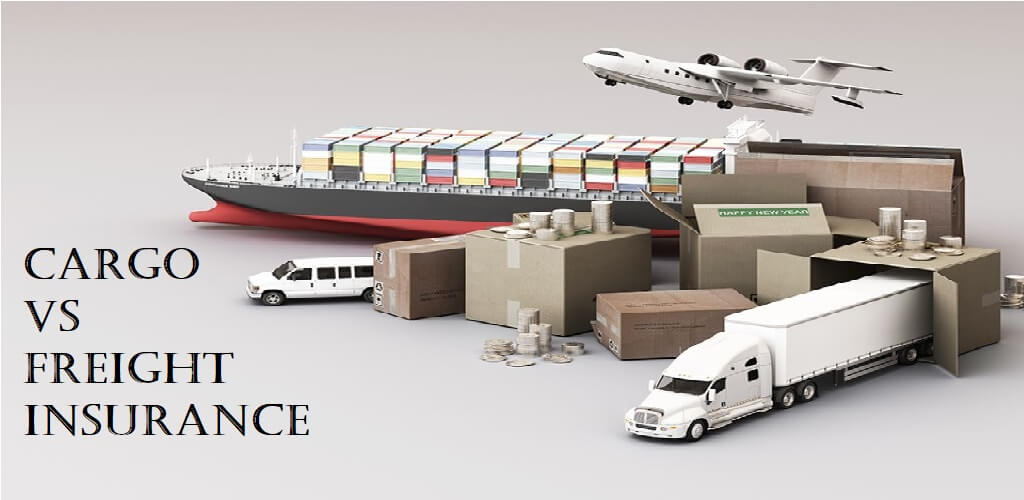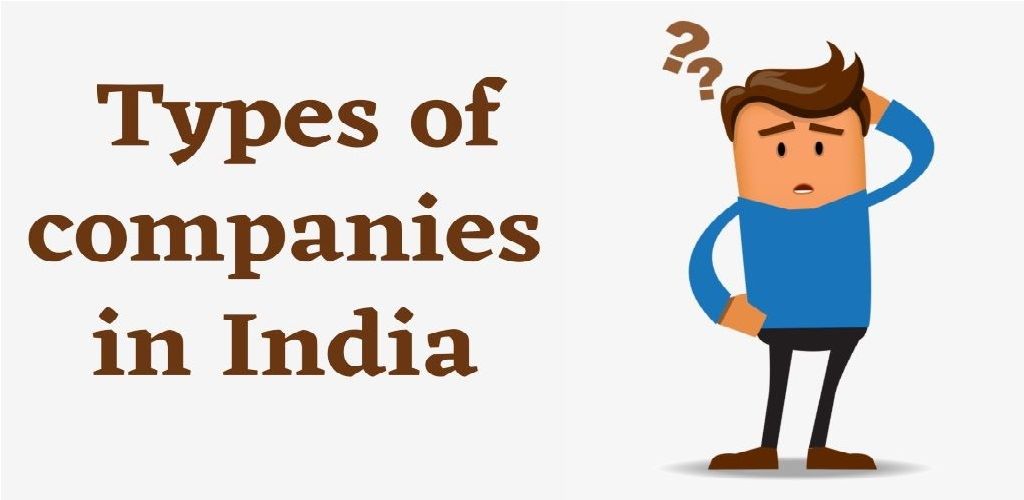Did you know?
As per the research report by the World Shipping Council (WSC), more than 1380 shipping containers are lost every year at sea.
Well, that sounds surprising, doesn’t it? But think about it- it leads to a big potential money loss for both shipping companies and the people shipping stuff with them.
Now, when it comes to protecting your goods, there are two types of insurance: Cargo Insurance and Freight Insurance. Although many people often mix up the terms, they are two different insurance products that cater to the diverse needs of businesses.
Both these products help cover your damaged or lost items during transit, but they work a bit differently.
So, what is the difference between cargo and freight insurance? And which one should you get for your business? Let’s find out!
What is Cargo Insurance?
In simple terms, cargo insurance is a kind of insurance product that acts as a safety net for businesses that deal in shipping from one place to another. It covers the financial loss if something happens to the goods during transit, like damage or loss. In international trade, it’s incredibly important for both importers and exporters because it protects them from the risks of things going wrong while their goods are on the move. Furthermore, this insurance product helps businesses to run smoothly even if unexpected problems occur during transportation.
In short, it covers a bunch of risks, like accidents, theft, bad weather, and other disasters, to ensure your goods are protected no matter what.
Types of Cargo Insurance Policies
It is no secret that cargo insurance comes in different types, each tailored to cover specific risks associated with the transportation of goods. Let’s take a look at different types of cargo insurance policies.
- Single Coverage
One of the popular cargo insurance products, this single coverage kind of policy provides coverage for individual shipments. These kinds of policies are ideal for small business owners who don’t ship goods more often.
- Contingency Policies
Another major yet popular form of cargo insurance product is that the customer or importer bears the responsibility for cargo insurance costs. Furthermore, this kind of policy may involve additional charges and may require legal assistance to determine liability for damages.
- Free From Particular Average (FPA)
Also known as the Named Perils Policy, FPA covers major damages typically not covered by all-risk coverage. This includes events like rough weather conditions, theft or piracy, collision, sinking, non-delivery of the cargo, and more.
- All-Risk Covered Policy
These policies cover damages caused by external factors beyond control. However, they typically exclude specific situations like customs rejection, war, riots, civil unrest, unpaid goods, negligence, and cargo abandonment.
- General Average
It is one of the important cargo insurance products that usually applies in marine freight where cargo owners compensate for damages to other cargo if their cargo remains undamaged or unlost during sea transit.
- Open Coverage
Last but not least, this kind of insurance product is ideal for businesses that frequently ship goods via air or shipping lines. Furthermore, these policies provide continuous coverage for ongoing shipping needs.
What are the Features and Benefits of Cargo Insurance?
Here is the list of the key features and benefits of cargo insurance.
- Protection Against Financial Loss
One of the key features and benefits of cargo insurance is that it protects businesses from all financial losses that may arise from damage or loss of goods during transit. Without this coverage, a business could be responsible for bearing the entire cost of lost or damaged goods, which would result in significant financial setbacks.
- Compliance with International Regulations
Another major benefit of choosing cargo insurance is that many countries require proof of cargo insurance for imported goods, which makes it essential for businesses that do export. With dedicated cargo insurance, businesses will not only protect their damaged goods but also adhere to international regulations which ensure smooth customs clearance.
- Tailor-made Coverage
Remember that the different types of cargo require specific insurance coverage. The best thing about cargo insurance is that it can be tailored to cover various types of goods, such as hazardous materials or perishable items. This customization ensures that businesses have the appropriate coverage for the specific type of cargo being shipped.
- Inclusion of Profit
The most important and biggest feature of cargo insurance is that many cargo insurance policies include coverage for potential profits lost due to damage or loss. This kind of feature may help businesses to maintain their financial stability even in adverse situations.
- Efficient Claim Process
Last but not least, cargo insurance often comes with professional assistance which facilitates a smoother and more efficient claim process. Professional service providers help navigate the complexities of filing claims, which ensures timely reimbursement for losses incurred during transit.
What is Not Included Under Cargo Insurance?
Here is the list of the things that are not covered under cargo insurance.
- Inadequate Packaging
It doesn’t include damage resulting from improper packaging of goods is usually not covered. If it’s determined that the damage occurred due to insufficient or improper packaging, the policy may not provide coverage.
- Flawed Products
Another major exclusion of cargo insurance is that it doesn’t cover damage related to faulty items within the cargo. If the damage is done by defective products then the insurance will not cover such expenses.
- Specific Type of Freight
Some insurance providers exclude coverage for certain types of cargo, such as hazardous materials, certain electronic products, or highly valuable or fragile items. It’s essential to check the policy to see what goods are excluded from coverage.
- Limited Modes of Transportation
Certain cargo insurance policies only cover goods when they are in transit via specific modes of transportation, such as ships, trucks, and planes. There are certain goods and modes of transport that are not covered under the policy.
Understanding Freight Insurance
To put it simply, freight insurance is a broader type of insurance policy that includes the transportation of goods from one place to another. It not only covers losses related to cargo but also other types of losses that may occur during the transportation process. The losses may include errors, liability, omissions, and delays in delivery.
Specifically, freight insurance covers a freight forwarder’s liability for damage or loss to customers’ goods during transit. However, for a claim to be payable, such damage or losses must be allocated to the freight forwarder’s negligence.
When it comes down to calculating the freight insurance coverage, it’s typically based on the weight of the goods being transported. This means that regardless of the value of the goods, the insurance payout would be the same for each unit of the weight.
For instance, in the event of a freight insurance claim, the same amount would be paid out for 1 kilogram of gold as it would be for 1 kilogram of paper.
Types of Freight Policy
Here is a list of the freight insurance policies. Let’s discuss them in detail!
- General Average
It is one of the popular kinds of freight insurance policies that covers the losses incurred due to such intentional actions to save the rest of the goods. When a cargo ship deliberately dumps some of its cargo to prevent the entire shipment from being lost, the policy comes into play.
- Errors & Omissions
Another kind of freight insurance policy is that it covers losses stemming from mistakes or oversights made by the carrier. These errors could include things like incorrect paperwork or miscommunication during the transportation process.
- Delay in Delivery
When the goods are delivered later than the agreed-upon date, this policy provides coverage for the losses incurred due to the delay. It helps mitigate the financial impact of delayed deliveries on businesses involved in the transportation of goods.
What are the features and benefits of freight insurance?
Freight insurance offers several benefits and features that are essential for businesses involved in transportation.
- Full Value Repayment
One of the key features and benefits of freight insurance policies is that businesses can receive full payment for lost or damaged goods. It ensures that the financial impact of such losses is minimized which helps businesses maintain their financial stability.
- Protection Against Multiple Diseases
Another major benefit of freight insurance is that it protects a wide range of disasters that may occur during transit. Whether it’s damage due to accidents, theft, natural disasters, or other unforeseen events, having the right insurance coverage ensures that businesses are adequately protected.
- Faster & Smoother Claim Processing
Another major feature and benefit of a freight insurance policy is that typically offers faster and smoother claims processing, which helps businesses get reimbursed quickly for any losses incurred during transportation. This streamlined process reduces administrative burden and ensures timely resolution of claims.
- Affordable Rates
Lastly, freight insurance often comes with affordable rates and flexible coverage options tailored to meet the specific needs of businesses. Whether it’s a one-time shipment or ongoing transportation needs, businesses can find insurance solutions that fit their budget and requirements.
What are the Exclusions Under the Freight Insurance Policy?
Listed below are the things not covered under the freight insurance policy.
- Inherent Vices
Some of the major things that are not included under a freight insurance policy are improper packaging and natural perishability. Remember that the cargo that is inherently prone to damage or loss due to its nature might not be included in the insurance coverage.
- Intentional Misconduct
It doesn’t include purposeful actions by the policyholder or their employees that result in harm or loss to the cargo may be excluded from coverage. This includes deliberate acts that lead to damage or loss during transportation.
- War, Terrorism, & Civil Unrest
It doesn’t include damage or loss caused by war, terrorism, or civil unrest and is typically excluded from freight insurance coverage. These are considered high-risk events that may not fall under the scope of standard insurance policies.
- Nuclear Risk
The freight insurance doesn’t cover loss or damage that results from nuclear radiation is generally not covered by freight insurance. These risks are often considered too unpredictable and catastrophic to be included in standard insurance policies.
- Certain Cargo Types
Some valuable items, such as precious metals, currency, and artwork, may not be covered under certain freight insurance policies. These items may require specialized insurance coverage due to their high value and unique risk factors.
Difference Between Cargo Insurance vs Freight Insurance
Here is the list of the differences between cargo insurance and freight insurance based on the following parameters.
| Parameters | Cargo Insurance | Freight Insurance |
| Coverage | When it comes to coverage, it provides coverage against various risks like accidents, bad weather, fire, theft, natural disasters, or faulty loading/unloading. | Freight insurance, on the other hand, protects the freight forwarder or carrier legally responsible for losses suffered by the sender due to damage or loss of transported goods. |
| Claim Value | Under cargo insurance, the claim value is evaluated by the commercial value of goods. If goods are lost or damaged, the sender receives compensation equivalent to the full value of the goods transported. | On the contrary, freight insurance‘s claim value is determined by the weight of the goods rather than commercial value. |
| Who Pays | Under cargo insurance, the freight forwarder arranges the policy with the insurance provider for the sender. | On the other hand, freight forwarder pays for the insurance to safeguard against liabilities arising from negligence or errors. |
| Modes of transport covered | Cargo insurance can be purchased for domestic and international shipments that cover multiple modes of transport such as land, air, or sea. | Freight insurance, on the other hand, covers the same modes of transport as cargo insurance. |
| Who can buy | It is available for anyone looking to cover their goods during transportation. | Freight insurance, on the flip side, can be purchased for commercial purposes. |
Final Thoughts
So, that’s a wrap to the differences between cargo insurance and freight insurance! Cargo insurance primarily benefits the sender of goods which offers protection against various risks during transit. On the other hand, freight insurance protects shipping companies or freight forwarders from liabilities and risks associated with forwarding shipments. Ensure you secure your shipment with either of these policies to mitigate risks and ensure smoother operations in the transportation industry.
Frequently Asked Questions
Listed below are the frequently asked questions related to cargo vs. freight insurance. Let’s discuss them in detail!
It’s not mandatory to purchase freight insurance, but it’s essential to safeguard your goods with an appropriate insurance policy against various transportation risks.
No, this policy doesn’t cover delays in transportation.
Yes, cargo insurance policies typically provide coverage for damage caused by natural calamities such as earthquakes and lightning.
Cargo insurance typically costs around 0.15% of the total value of the goods, based on the commercial invoice. However, actual costs may vary depending on the insurance company and its specific offerings.
In simple terms, high-risk freight refers to cargo that is both high-value and attractive to thieves.








